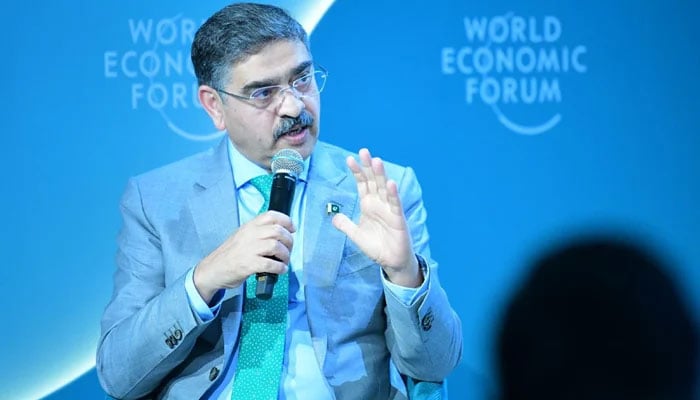Multi-crises
Multi-crises are the presence of several crises occurring simultaneously. A complex emergency is defined as a circumstance marked by multiple interrelated crises, necessitating a comprehensive and coordinated response. Sounds familiar! Here are the six crises occurring concurrently:
Iran: In a brazen act of aggression, Iranian forces illegally breached Pakistani airspace and conducted a strike that targeted Pakistani territory. This unprovoked incursion resulted in the tragic loss of life on Pakistani soil, a blatant violation of sovereignty and a direct threat to regional security. Pakistan’s armed forces, exercising their right to self-defence, responded decisively to this hostile action.
Afghanistan: In 2023, there was a several fold increase in the use of Afghan soil as a launchpad for attacks against Pakistani territory. The Afghan government either permitted or was unable to prevent terrorists from using Afghan soil to launch cross-border attacks with greater frequency. In 2023, over 750 terrorist attacks occurred, resulting in more than 1,500 casualties. This surge in attacks has resulted in a four-fold rise in casualties on the Pakistani side, posing a grave security challenge for Pakistan.
India: India’s Northern Command is headquartered at Udhampur with operational units under four corps: XIV Corps, I Corps, XV Corps and XVI Corps. On the Pakistani border are the 39 Mountain Division, 4 RAPID Division, 6 Mountain Division, 3 Infantry Division, 254 Armored Brigade, and 10 RAPID Division. Then there is India’s Western Command with II Corps (Ambala), IX Corps (Yol), XI Corps (Jalandhar) and 40th Artillery Division (Ambala). Targeting Pakistan are 1 Armored Division, 22 Infantry Division, 612 Air Defense Brigade, 55 Mechanized Brigade, and half a dozen other infantry divisions.
Terrorism: The year 2023 marked the deadliest period for Pakistani police and military forces in a decade, collectively witnessing the loss of more than 700 personnel. Simultaneously, a comparable number of civilians lost their lives. The surge in terrorist attacks in Pakistan has been truly alarming, experiencing a 73 per cent increase in under two years since the Taliban assumed control in Afghanistan.
Polarization: Pernicious polarization, characterized by extreme divisiveness and deep antagonism between politically opposing groups, is now destroying our social bonds. Pernicious polarization destroyed Zimbabwe, Greece, Hungary, Georgia, Venezuela, Ecuador, Kenya and Nigeria.
Election security: A total of 412,854 police personnel will be necessary for the conduct of the polls. However, according to the Election Commission of Pakistan (ECP), there is a shortfall of 277,558 security personnel required to ensure the effective and secure execution of the general election.
In the face of the interconnected crises outlined, it becomes imperative to question our priorities. Yes, democratic processes, such as elections, are fundamental to a functioning society. But, the magnitude and severity of the crises at hand – external aggressions, cross-border attacks and internal security threats – demand a profound reconsideration of our focus. Shouldn’t we be allocating resources, attention and efforts towards ensuring national security, stability, and the wellbeing of Pakistanis? To be certain, a nation resilient in the face of crises is better equipped to uphold the principles of democracy in the long run.
The writer is a columnist based in Islamabad. He tweets/posts @saleemfarrukh and can be reached at: farrukh15@hotmail.com
-
 Extreme Cold Warning Issued As Blizzard Hits Southern Ontario Including Toronto
Extreme Cold Warning Issued As Blizzard Hits Southern Ontario Including Toronto -
 Lana Del Rey Announces New Single Co-written With Husband Jeremy Dufrene
Lana Del Rey Announces New Single Co-written With Husband Jeremy Dufrene -
 Ukraine-Russia Talks Heat Up As Zelenskyy Warns Of US Pressure Before Elections
Ukraine-Russia Talks Heat Up As Zelenskyy Warns Of US Pressure Before Elections -
 Lil Nas X Spotted Buying Used Refrigerator After Backlash Over Nude Public Meltdown
Lil Nas X Spotted Buying Used Refrigerator After Backlash Over Nude Public Meltdown -
 Caleb McLaughlin Shares His Resume For This Major Role
Caleb McLaughlin Shares His Resume For This Major Role -
 King Charles Carries With ‘dignity’ As Andrew Lets Down
King Charles Carries With ‘dignity’ As Andrew Lets Down -
 Brooklyn Beckham Covers Up More Tattoos Linked To His Family Amid Rift
Brooklyn Beckham Covers Up More Tattoos Linked To His Family Amid Rift -
 Shamed Andrew Agreed To ‘go Quietly’ If King Protects Daughters
Shamed Andrew Agreed To ‘go Quietly’ If King Protects Daughters -
 Candace Cameron Bure Says She’s Supporting Lori Loughlin After Separation From Mossimo Giannulli
Candace Cameron Bure Says She’s Supporting Lori Loughlin After Separation From Mossimo Giannulli -
 Princess Beatrice, Eugenie Are ‘not Innocent’ In Epstein Drama
Princess Beatrice, Eugenie Are ‘not Innocent’ In Epstein Drama -
 Reese Witherspoon Goes 'boss' Mode On 'Legally Blonde' Prequel
Reese Witherspoon Goes 'boss' Mode On 'Legally Blonde' Prequel -
 Chris Hemsworth And Elsa Pataky Open Up About Raising Their Three Children In Australia
Chris Hemsworth And Elsa Pataky Open Up About Raising Their Three Children In Australia -
 Record Set Straight On King Charles’ Reason For Financially Supporting Andrew And Not Harry
Record Set Straight On King Charles’ Reason For Financially Supporting Andrew And Not Harry -
 Michael Douglas Breaks Silence On Jack Nicholson's Constant Teasing
Michael Douglas Breaks Silence On Jack Nicholson's Constant Teasing -
 How Prince Edward Was ‘bullied’ By Brother Andrew Mountbatten Windsor
How Prince Edward Was ‘bullied’ By Brother Andrew Mountbatten Windsor -
 'Kryptonite' Singer Brad Arnold Loses Battle With Cancer
'Kryptonite' Singer Brad Arnold Loses Battle With Cancer




